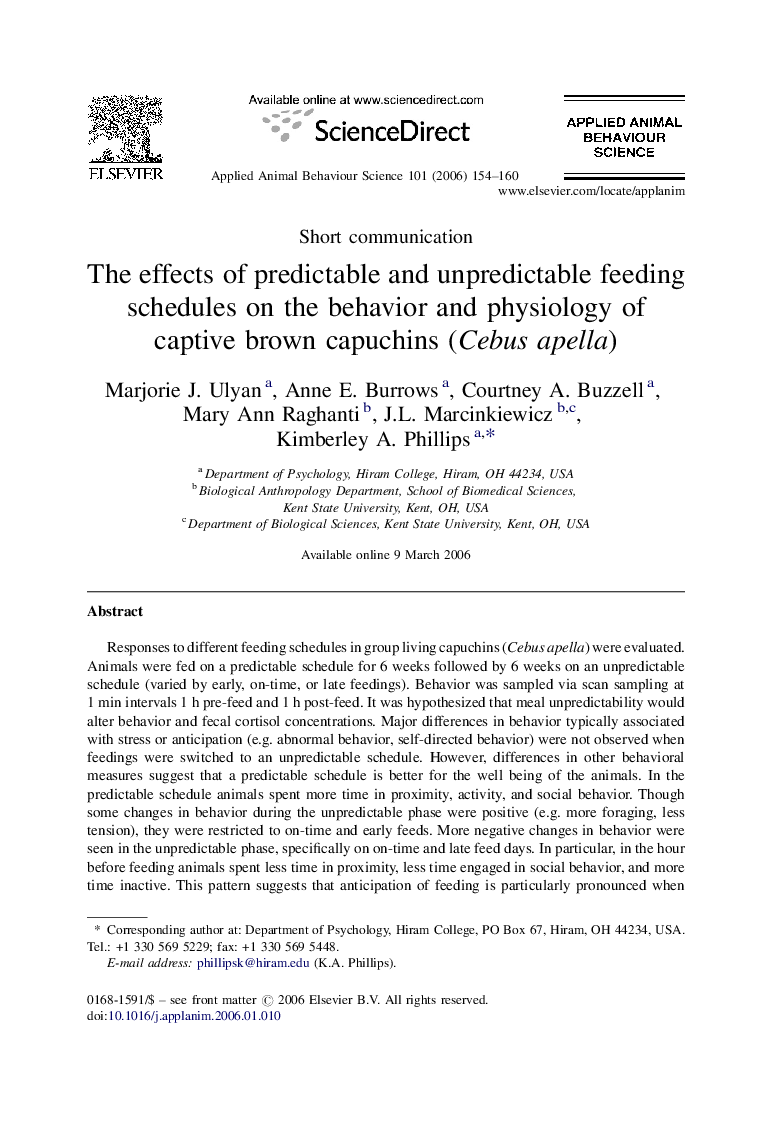| کد مقاله | کد نشریه | سال انتشار | مقاله انگلیسی | نسخه تمام متن |
|---|---|---|---|---|
| 4524110 | 1625440 | 2006 | 7 صفحه PDF | دانلود رایگان |

Responses to different feeding schedules in group living capuchins (Cebus apella) were evaluated. Animals were fed on a predictable schedule for 6 weeks followed by 6 weeks on an unpredictable schedule (varied by early, on-time, or late feedings). Behavior was sampled via scan sampling at 1 min intervals 1 h pre-feed and 1 h post-feed. It was hypothesized that meal unpredictability would alter behavior and fecal cortisol concentrations. Major differences in behavior typically associated with stress or anticipation (e.g. abnormal behavior, self-directed behavior) were not observed when feedings were switched to an unpredictable schedule. However, differences in other behavioral measures suggest that a predictable schedule is better for the well being of the animals. In the predictable schedule animals spent more time in proximity, activity, and social behavior. Though some changes in behavior during the unpredictable phase were positive (e.g. more foraging, less tension), they were restricted to on-time and early feeds. More negative changes in behavior were seen in the unpredictable phase, specifically on on-time and late feed days. In particular, in the hour before feeding animals spent less time in proximity, less time engaged in social behavior, and more time inactive. This pattern suggests that anticipation of feeding is particularly pronounced when feeding times are delayed in an unpredictable manner. Cortisol concentrations were significantly higher during the unpredictable phase than the predictable phase. Subjects did not habituate to the unpredictable feeding schedule, as evidenced by sustained elevated cortisol concentrations during the sixth week of the unpredictable feeding schedule when compared to cortisol concentrations during the predictable phase. The results of both the behavioral and physiological data suggest that predictable feeding schedules may be most beneficial to the well being of captive capuchins.
Journal: Applied Animal Behaviour Science - Volume 101, Issues 1–2, 1 December 2006, Pages 154–160